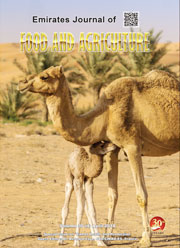The consumer’s perceptions and attitudes toward innovative foods in united arab emirates
DOI:
https://doi.org/10.9755/ejfa.2022.v34.i6.2895Abstract
The success of innovations in food industry mainly depends on consumers’ involvement in the process. Consumers’ trust on developed
innovative food products or food production technologies can enhance acceptance/adaptation of them. Consumer acceptance of innovations
in general, and technology-based food advances in particular, have been studied extensively. They cover a wide range of facets of the
consumer adoption process, from awareness to actual adoption. However, there is a lack of a comprehensive and systematic overview
that includes all potentially influential determinants. To fill this gap, we used a conceptual framework for consumer acceptance and
adaptation of food innovations. The question needs to be answered is, how consumers perceive sustainable innovations in food products,
the way the perception affects their perceived risk & uncertainty, perceived cost/benefit, and attitude strengths toward the innovations? A
questionnaire was developed and implemented via stratified random sampling on 400 selected consumers in UAE consumers. Confirmatory
factor analysis and a structural equation model (SEM) were used to analyze the general fit of the proposed model and test the developed
hypotheses. According to the results the perception of sustainable food innovations is directly affected by some contextual factors (relative
advantage, complexity, and observability) determined as product characteristics and mediates the relationship between those factors and
consumer adaptation of the innovation which is affected by perceived cost/benefit, perceived risk & uncertainty, and attitudes










 .
. 